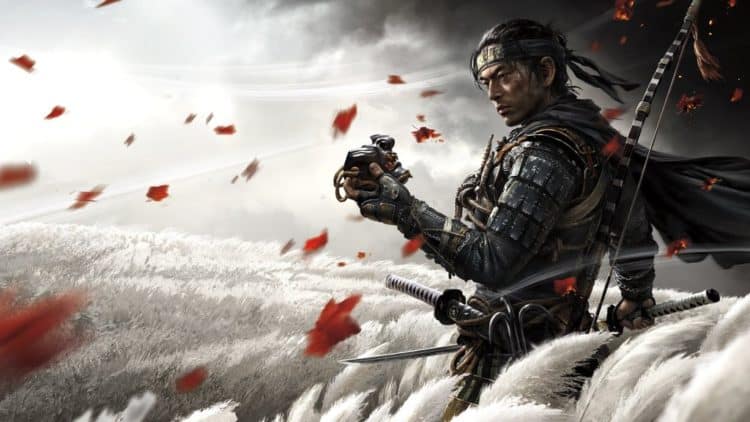
I turn on the Playstation 5. That pile of games I bought but never got to is growing bigger while the list of games I actually play gets smaller. Regardless, I find the one I’m looking for — probably Red Dead Redemption 2 online or NBA 2kwhoreallycares. I check my phone during cutscenes, try the same flawed strategy that’s gotten me killed a couple dozen times, then turn off the game a few hours later without any recollection of anything I’ve done. A look at Reddit shows how common brand of autopilot is among gamers. After all, games don’t always serve a greater purpose than to entertain for a few hours, but do they even do that anymore? Do I play games because I want to free my mind or do I play them to pass the time by doing something wrong? There’s nothing inherently wrong with that. Games like Tetris linger on because they’re still fun to play mindlessly while problem-solving in the background.
After a year of introspection, a marathon of games, and the realization that I was playing them with the same urgency as a day of work on an assignment that I did not want. I played on Switch while episodes of Community or Tiger King or Curb Your Enthusiasm provided background noise. Then, I played Ghost of Tsushima. I don’t know exactly why, but something struck me when I started. The game was immersive and fun, but I had a hard time getting through it playing in the mindless way that made easy work of Mario Odyssey and Breath of the Wild — not to say those games are inherently mindless. I can tap the buttons with relative ease, and even when I die, I usually see the light at the tunnel’s end. Ghost did not allow this.
For those who don’t know, Ghost of Tsushima is Sucker’s massive open-world Samurai adventure heavily influenced by Japanese history and the stylistic visions of Akira Kurosawa. With an RDR-sized map and an open-ended journey, it’s a game that allows full autonomy, but that doesn’t mean you turn off your brain to do so. For whatever reason, I picked the hardest setting then set out to reclaim the Sakai family name. I probably played the first battle 35 times before the realization hit me that I no longer thought about my gaming strategies. My longest-running joke with friends is the fact that for someone who has spent over quarter-century playing games from childhood to now, I’m still bad at most games. In Call of Duty, my best case scenario is flanking people with a shotgun before getting their scope onto my head. In 2K, I tend to pick a hero, shoot a bunch of threes or lay it in and hope my opponent cannot play a lick of defense. I cannot do this in Ghost.
Ghost features one of the most streamlined fighting systems that the world has ever seen. It’s never enough to watch for your opponent, hit the block or parry button, and take them out. You can do this, but it’s rarely the only answer to a fight. Instead, Ghost makes its users keep track of different stances while playing three-dimensional chess and figuring out how to get out of the latest pickle. It’s frustrating and challenging, but it’s also intellectually stimulating when you finally figure it out. By taking away the cat-like agility of Assassin’s Creed, Sucker Punch gave a grounded version where hitting X was not enough to get out of the way. You might escape that blow, but on recollecting your step, a foe may take advantage and strike. Luckily, the game does not suffer from the controller lag that other games of the genre have. While easier modes may allow for standard hack-and-slash play, the legendary mode forces mindless gamers like myself to think about their every action.
Every gamer calls their favorite games immersive, but few games are as immersive as Ghost. Jin Sakai is a lived-in character who feels like the type of swordsman in a Kurosawa samurai epic. Sakai cannot just button mash and fake his way to making a name. He has to learn how to embrace everything that he’s been taught, adjust to new technology and strategy, and change his strategy on the fly. Ghost offers complete freedom and forces players to switch things up, so they’re not just stabbing everyone they see and hiding bodies. Sometimes, that’s the best choice. Other times, it’s better to go in with a sword-swinging and hopes that a brute won’t blindside you with with the broad side of his warhammer. One wrong move doesn’t always mean brief encounter, it can be the difference between silently killing a camp full of the enemy troops and having all those troops come over to you. The AI here is too smart to exploint, though occasional glitches make this easier.
Long story short, games like Ghost know the tendencies that gamers like myself have to assume we can dial it in just cause we’ve been doing this since Super Nintendo when reality states that we fall back into Mortal Kombat button mashing because we haven’t advanced with the tech. It’s not a cinematic movie like a Quantum Realm release, but a gave that offers full autonomy while telling a narrative tale that forces us to think like its protagonist, or else. More than a decade into the stealth-based action adventure games pinnacle, we’re finally getting prestige games that don’t focus on body counts and blood lust. They focus on the way of the samurai, tell us the strengths and weaknesses of different stances and strategies, and make us think more meditatively about the peace we’re trying to attain through violence.
The politics behind this message are an entirely different discussion, but the core of what makes Ghost so special, is it teaches gamers like me who have gotten by on playing like I drive by constantly hurling wrenches in my path without holding my hand and telling me how to fix them. It’s a valuable strategy in everyday life, but it’s especially valuable skill for those who forget why they play these games. Hopefully, the game’s massive success and upcoming expansion make other genre competitors think about the mindfulness behind even the most violent games. Not only does it make the ultimate victory more rewarding, but it teaches you skills that improve gaming on unrelated titles, too.Assassin’s Creed
 Follow Us
Follow Us





